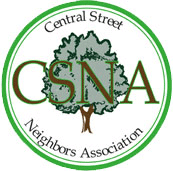What to Do About the Branch Libraries?
Like the NU Wildcats coming back against the Auburn Tigers, Evanston's branch libraries have survived numerous budgets. But ultimately, the Wildcats lost and the branches most likely will fall to the current budget crisis. Emails are flying back and forth with requests for volunteers and arguments about the valuable services the branches give to our community. The fact remains, however, that the budget for the branches only shows one revenue source- taxpayer dollars.
The direction of the course of discussion about the fate of the branches needs to change. The arguments and motivations that led to the creation of the branches no longer apply. In our digital age, the role of the library system has changed. Nostalgia is not a valid reason for continued funding. Yet, the branches are valuable community centers that anchor neighborhood commercial districts. The branch library locations need to be preserved as these community centers, but they need to be self-supporting.
As a participant in the City Budget Workshops, I was impressed by the process by which concerned citizens came together, generated informed ideas, and then expressed preferences that were confirmed by polling the larger community. May I suggest that a few aldermen, or the Central St. Neighbors Association or some other group sponsor a similar workshop?
Could the concept behind the BooCoo cultural center be applied to the branch locations? If the branch libraries are closed, does that mean the book collections are now redundant and could be the initial inventory of a used book store? Is there space for classes in art or movement? Would a “juice bar” for middle school students provide a safe place for young people to hang out?
Evanston does not need two new empty storefronts. The proposed City budget preserves funding for economic development. Perhaps this department could prove its value by facilitating the transition from one form of community center to another.
Above all, I believe both branches are public assets that should not be sold off and that concerned Evanstonians should have a role in determining their transformation into self-supporting operations.
- johnzbesko's blog
- Log in to post comments
